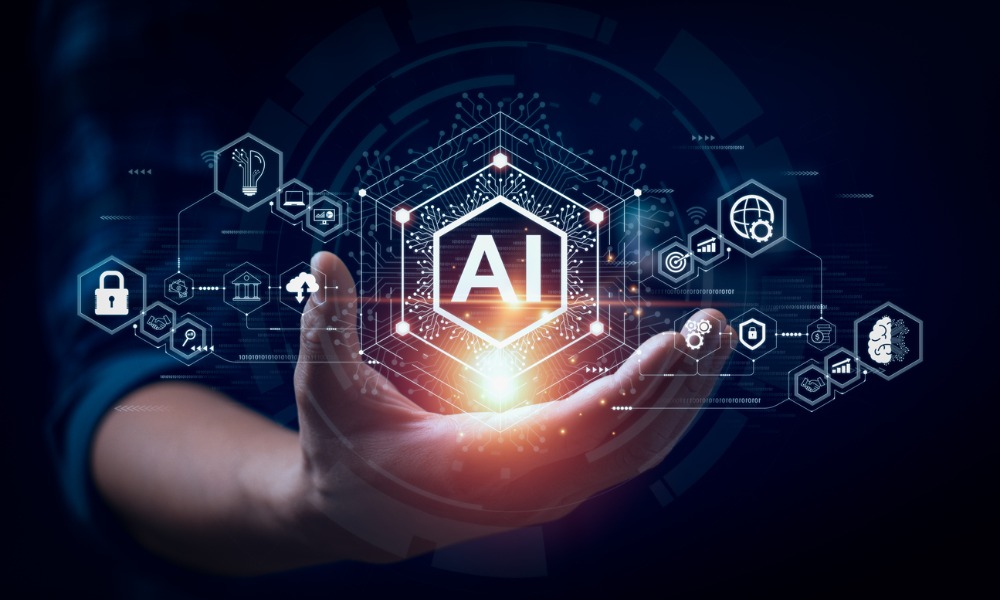AI should not be dismissed or feared. It presents our profession with an unprecedented chance to innovate

The world of law has seen an influx of large-language-model artificial intelligence along with a wave of optimism, skepticism, and even fear. As a legal professional, I am thrilled by the arrival of this technology, as it heralds the potential for a more efficient and sophisticated practice.
Detractors argue that AI-generated responses are mere pastiche, lacking in substance and trapped in the uncanny valley. It’s true that absent good prompting, AI can be less than perfect. However, consider a lawyer who asked ChatGPT a complex legal question and received an answer that was only 65 percent complete. Notably, that percentage is in line with the bell curve in law school. But, more importantly, in the time it took to write the question and the 30 seconds it took ChatGPT to generate the answer, 65 percent of the work was already done.
There is a false dichotomy at play here: AI will either have no value and no impact or will signal the end of lawyers. AI is incredibly valuable and will fundamentally change how we practise, teach young lawyers, and focus our time. It paves the way for more bespoke work and an end to menial drafting, allowing us to concentrate on strategy instead of brute force work. As trusted advisors, our roles will expand to be intermediaries between clients and machines.
This journey toward deeply optimal law, as described by visionaries like Ray Kurzweil and Isaac Asimov, has accelerated tremendously. We are no longer talking about when computers will be able to synthesize multi-modal inputs (language, sounds, images) but how to protect privacy as they do so. This is a paradigm shift, and privacy barriers will not halt the exponential evolution.
Indeed, we are moving faster than the speed of light with this technology and peering into the future. The distinctions between innovators, early adopters, early majority, late majority, and laggards will become more pronounced, and the consequences of falling behind will magnify. As I look at this evolution and relish its arrival (a dream I first had eight years ago, discussing deeply optimal law with futurist and Blue J CEO Benjamin Alarie), the only thing that surprises me is how muted the response is and how desensitized we’ve become to revolutionary change.
This is Gutenberg press territory; everyone is acting like it’s the next-generation iPhone. Selfishly, I’m okay with the indifference. It gives me more time to learn and grow with my new AI partner. With ever-shortening learning curves in which to take advantage and differentiate with technology, I’ll take all the time I can get.
Integrating AI into law practice is not a threat but an opportunity. We must embrace this technology and adapt our methods, focusing on testing and refining AI-generated output. Gone are the days lawyers learned how to draft a lease by reading 1,000 leases. Now lawyers will be tasked to ensure the quality and reliability of the outputs, a far more active and intellectually satisfying approach.
Law schools and continuing legal education programs must also adapt to prepare future generations of lawyers for this new reality. Curricula should include AI, machine learning, and data analysis courses, equipping students with the knowledge and skills needed to navigate the AI-powered legal landscape. By fostering a tech-savvy generation of lawyers, we can ensure that the profession remains relevant and indispensable in an increasingly digital world.
In embracing AI, we must also recognize its potential challenges and risks. Issues such as algorithmic bias, data privacy, and the digital divide must be addressed to prevent AI from exacerbating existing inequalities and injustices. As lawyers, we are responsible for monitoring these risks vigilantly and advocating for measures that promote equity and access to justice for all.
Ultimately, law’s AI revolution is not a zero-sum game. It is a transformative force that promises to reshape the legal landscape for the better, enabling us to deliver more efficient, accurate, and personalized services to our clients. By embracing this technology and adapting to its challenges, we can elevate our practice to new heights, unlocking the full potential of deeply optimal law and ensuring that our profession remains indispensable in the AI-driven future.











